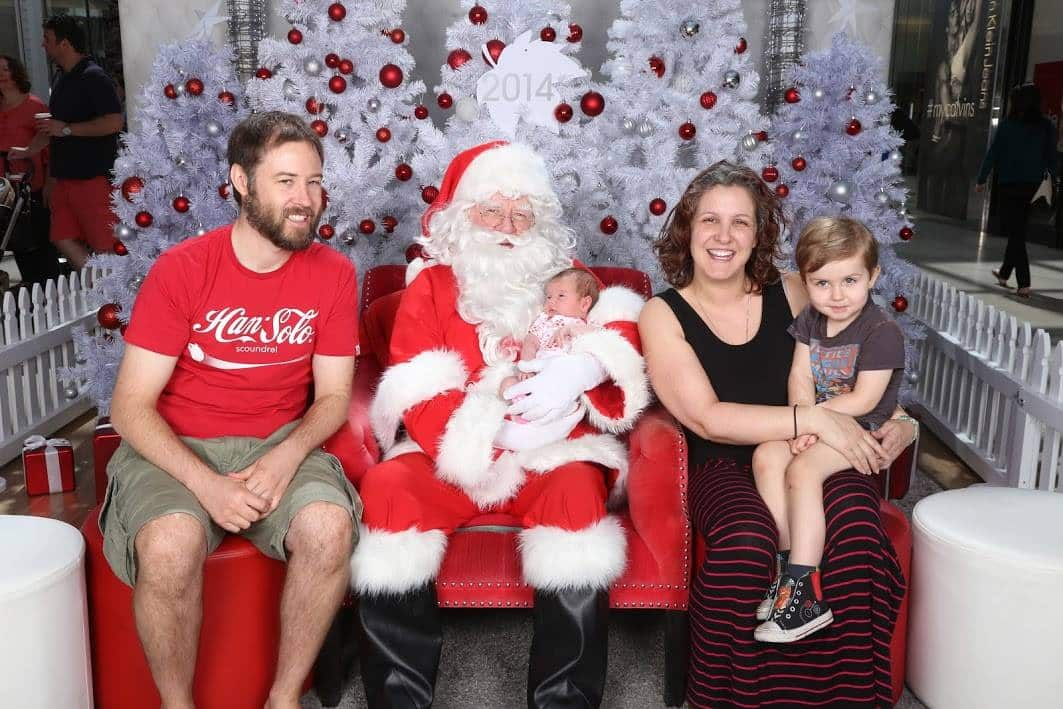Adelaide woman Kate Raferty’s son just started school, her daughter is two.
She doesn’t like to speak about it with her doctors, but she may not get the chance to see them grow up.
Ms Raferty has a severe form of Leukaemia, which relapsed early in 2017.
She needs a life-saving bone marrow transplant – a simple one-day procedure for the donor – but of the millions of registered donors around the world, none are a match.
“It was a bit hard to absorb because everything happened so fast when I was first diagnosed,” she told SBS.
“They focused on my sister being a match, and that took weeks to work out that she wasn't a match.”
Only about 30 per cent of patients are able to find a match within their family - the chance of a single sibling being a match is 25 per cent.
“At about the same time, they told me there wasn't a match worldwide, but never really worked out or advised why,” Ms Raferty said.
An uncomfortable truth
The likely reason is as uncomfortable one – Ms Raferty’s mother is Hungarian and her father is a white Australian.
The unique background is an inherent part of what makes Kate Raferty who she is, but it may have doomed her chances of finding a donor.
Bone marrow transplants require a partial genetic match relating to an array of genes known as the HLA system - family members are the best chance of a match, but failing that it's likely a donor will have to be found from people with a similar ethnic background.
“People like us who have migrated to Australia, or are children of those who migrated and help make up multicultural Australia, have one of the worst chances of finding a match,” Ms Raferty said.
Paul Berghoffer, Operations Manager with the Bone Marrow Donor Centre, says that while donor matching is based on a range of factors, a HLA match is critical - it's the system which your immune defences use to distinguish your own cells from foreign cells.
“You inherit half of your HLA type from your mother and half from your father, and because it is an entirely inherited trait, we find there are HLA clusters within particular ethnic groups," he said.
Within Australia's 170,000-strong donor pool, northwest Europeans are probably over-represented, he said.
“The challenge for donor registries in Australia and around the world is to build genetically diverse registries that are reflective of those who need help."
While factors vary case to case, those with a mixed genetic background, such as Kate Raferty, can have even rarer HLA types.
“Looking at the law of averages, it’s definitely more challenging for people of mixed backgrounds to find a HLA match," he said.
"Given there are roughly 29 million donors registered world-wide, the fact that people still can't find a match just stands to show how variable HLA types are."
The answer, he says, is recruitment focused on ethnic minorities and people with mixed backgrounds.

Taking control through social media
In her desperation to stay alive to see her children grow up, Ms Raferty has taken to social media to raise awareness and increase donor registration.
“Our cure is out there in someone else in the world, we just need them to register,” she said.
The Raferty family isn’t the only one looking.
Tania in South Australia has a mixed Balkan background.
Baby Ruby in the UK has a mixed Latin American background.
Six-month-old Austin in the UK is of mixed Polish background.
Five-year-old Valerie in the UK has an African background.
Each family is desperate to find a match, and they work with each other as part of an international drive to increase the genetic diversity of registered donors.
“I am determined, determined to ask each and every one of you to help to save people like my son by signing up to become a stem cell donor for patients in need,” said baby Austin’s father, Lewis.
Some campaigns have signed up thousands of extra donors, and turned up matches for multiple other patients.
Because people are often unaware of the diversity of their own genetic make-up, their campaigns target people very broadly.
“My mum is from Hungary but thinks her grandma was from Czechoslovakia,” Ms Rafferty said.
“Possibly also any bordering country might share the same tissue types.”
While doctors have told Ms Rafterty her chances of finding a match are slim, she remains optimistic.
“Others have found their matches by campaigning like this, but sadly others have died in their search,” she said.
Enrolled in a drug trial and receiving blood cord transplants, she now has some extra time with her children, but she says her only hope of a cure is a transplant.
“Someone with mixed Jewish-Chinese heritage just found their match,” she said, “so we live in hope.”
You can join Australian Bone Marrow Donor Registry if you are aged between 18 and 45 years, in good health and meet the eligibility criteria. Joining the registry requires a blood test. If you are found to be a match, donating can be done through a blood donation or a relatively simple day procedure.
Find out more from the Australian Bone Marrow Donor Registry. To register call 13 14 95.

